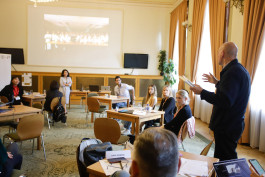
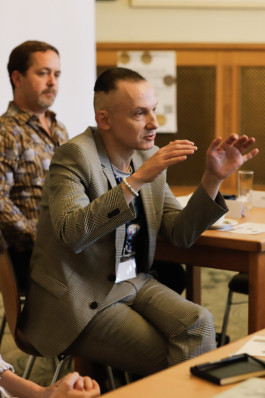
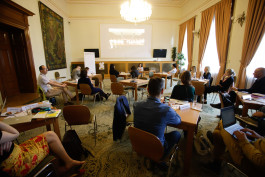
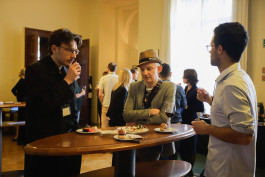
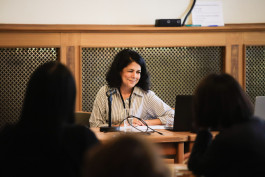
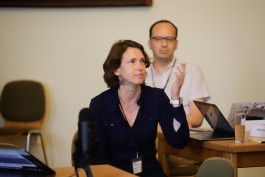
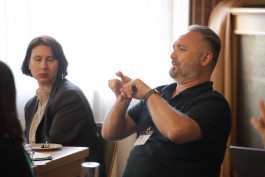
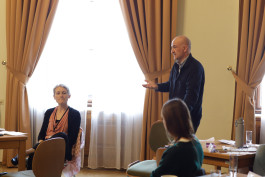
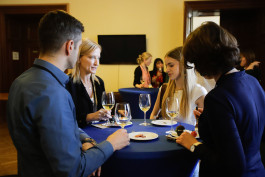
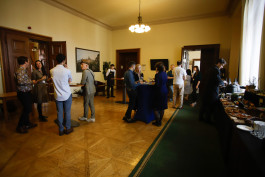
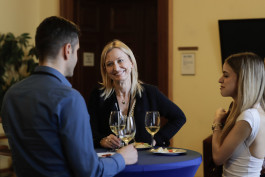
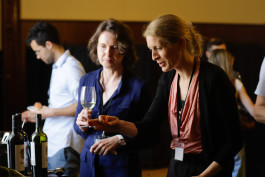
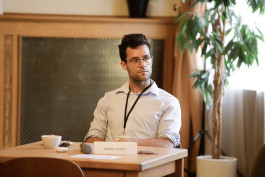
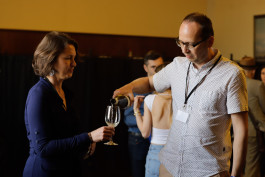

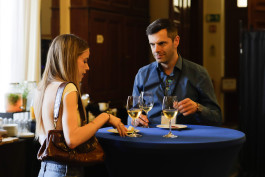
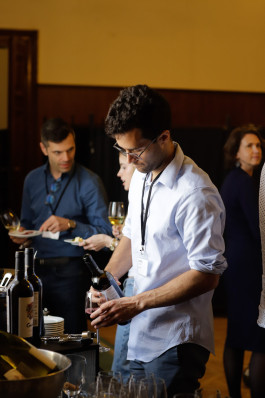
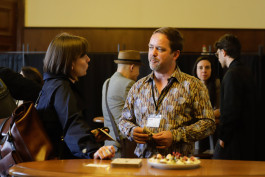
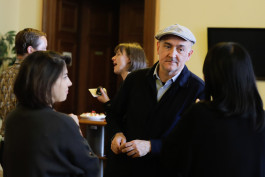
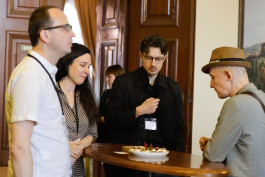
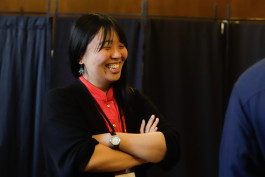

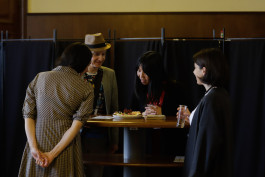

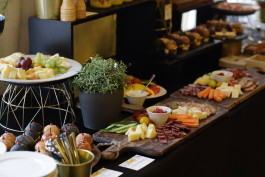
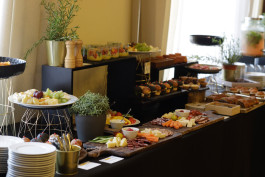
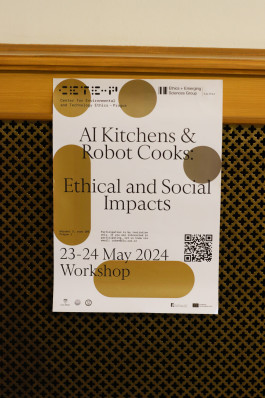
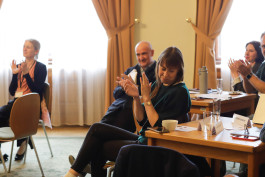
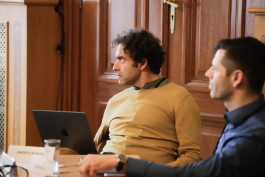
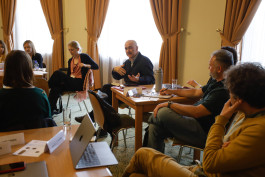
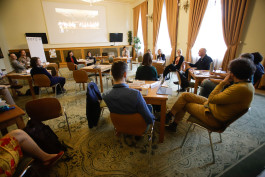
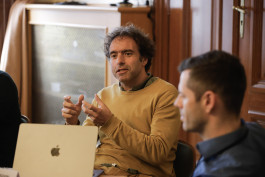
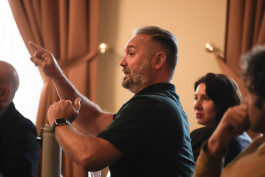
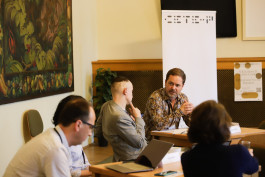
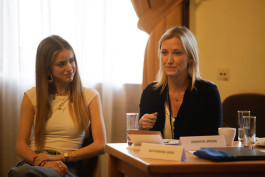
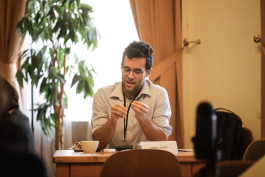
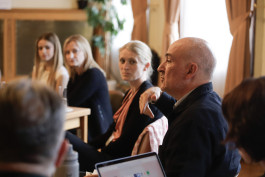
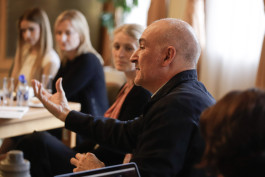
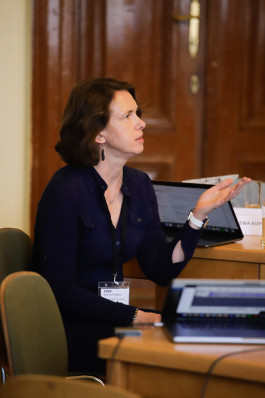
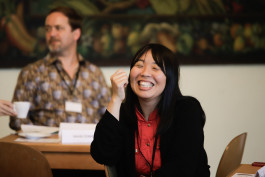
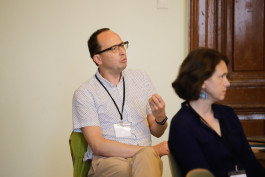

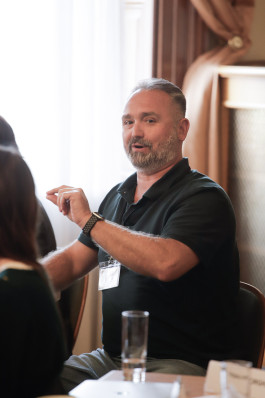
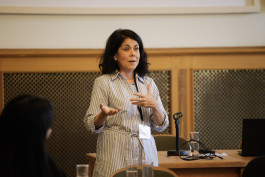
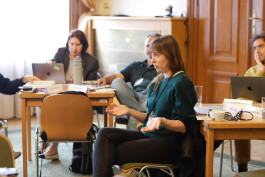
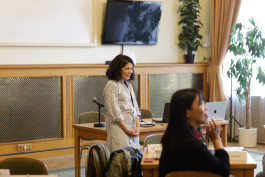

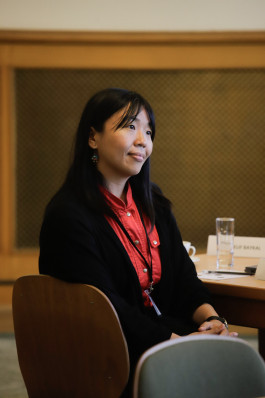
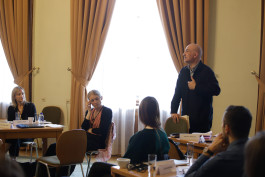

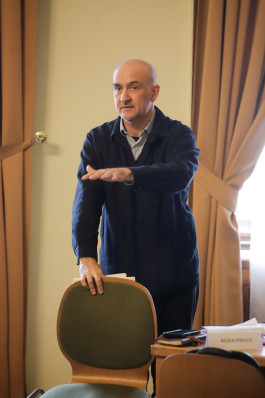
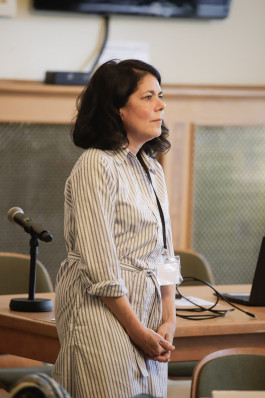

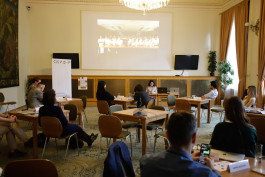
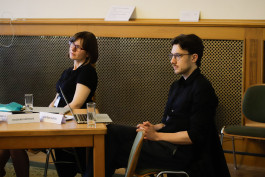
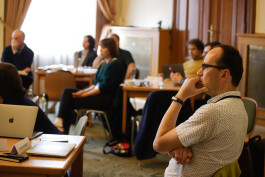
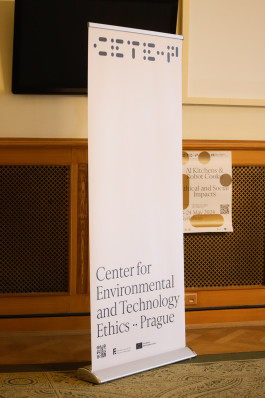
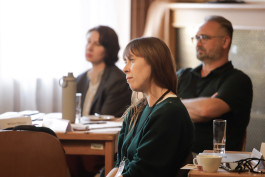
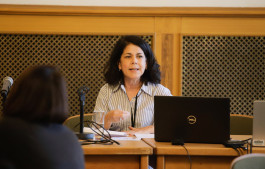
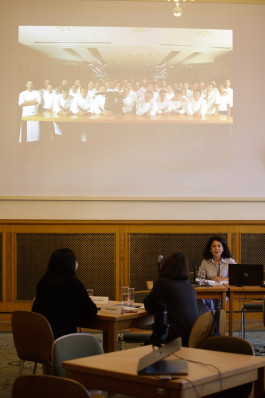
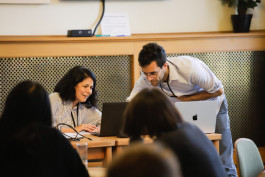
Robots with AI systems are becoming part of our kitchens. Unique workshop in Prague explored social and ethical impacts
Automated systems are gradually enriching or replacing kitchen tasks performed by humans in restaurants and homes. International experts from academia, leading developers, and journalists gathered in Prague for a two-day workshop, one of the first of its kind, to discuss the societal and ethical impacts of these technologies. The impacts are wide-ranging, affecting the job market, child development, cultural traditions, gender roles, and much more.
Possible biases and environmental costs
One of the ethical problems is that any AI system, by its nature, is prone to biases. “An AI system is considered biased as long as it unfairly and systemically discriminates against groups or individuals, who are the users of the system or other stakeholders. This is bound to happen, given that generative AI works by gathering as much data as possible from a given domain and replicating its patterns,” said Tomaš Hříbek, a researcher from one of the organizing institutions, Center for Environmental and Technology Ethics - Prague (CETE-P), during his presentation at the workshop.
“Similar kinds of biases are bound to be replicated in the kitchen, for example, if the system uses face, voice, or body recognition,” added philosopher Juraj Hvorecký from CETE-P. Moreover, a connected ethical problem with robotic kitchens is that they may suppress the diversity of cuisines. “There is no general, universal cuisine; there are only local, regional, and even personal recipes that automation may level out,” claimed Hvorecký. Additionally, as with other new technologies, there are huge environmental costs, for example, in terms of energy demands and rare minerals necessary for production.
On the other hand, automation may help with cooking for vulnerable groups, such as disabled or elderly people who have difficulty cooking for themselves. Robotic kitchens may also save time and reduce some gender inequalities. “The majority of home cooks are women, and their work is unpaid labor, so robot kitchens may help reduce this burden,” proposed philosopher Daniel Story, one of the organizers of the workshop from California Polytechnic State University.
However, anthropologist Katharina Graf from Goethe-Universität Frankfurt pointed out that, based on historical experience with the introduction of domestic technologies, these promises may not be fulfilled. Her research on robot cooks in Germany shows that time reduction has not yet occurred, and the majority of users are still women. Furthermore, the workshop co-organizer and American psychologist Jennifer Jipson explored how robot cooks may be integrated into families, which can have a significant impact on children’s education and their experience of the process of making and serving food.
Future for gastro services?
At present, robot cooks and AI kitchens are primarily used in restaurants and bars rather than homes. For example, half of the restaurants in the U.S. plan some form of automation; in recent years, the first robots have also been introduced in Czech gastro services. “Robotic hands preparing food at home on a large scale is more of a fantasy right now. They are only being tested and are extremely expensive. However, in the context of bars and restaurants, it makes much sense and is already a good investment,” said Alan Adojaan, CEO of YANU Robotics from Estonia.
At the workshop, Adojaan introduced their world’s first fully autonomous AI robot bar. He sees advantages in these systems performing unpopular tasks instead of humans, especially in nightclubs. He is not concerned about job losses since employees may take up other, more fulfilling positions within the operation. On top of that, journalist Lisa Abend described in her presentation specific demanding and exploitative tasks performed by humans in restaurants when preparing luxurious foods in so-called haute cuisine. These practices may also be avoided with the help of robots.
Nicola Perullo, a professor of aesthetics at the University of Gastronomic Sciences in Pollenzo, emphasized that we should not be uncritically optimistic about these innovations and should be aware of the marketing strategies used by companies to promote them. “When someone says this technology is the future, it is meaningless. It is present. We simply don’t know what the future holds. These devices obviously exist and may have useful applications. However, it depends on us whether and how we use them; it is not a given that they will replace or substitute humans. It is something that companies want you to think to buy their products,” concluded Perullo.
This workshop was supported by funding from the US National Science Foundation, award no. 2220888, as well as the Center for Environmental and Technology Ethics - Prague (CETE-P) at the Institute of Philosophy, Czech Academy of Sciences, supported by the EU Horizon Europe grant, No. 101086898.





















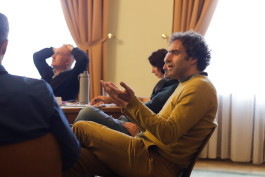




































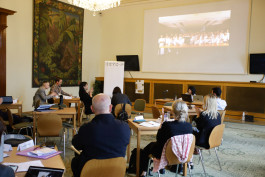
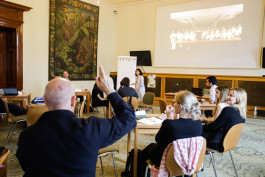


Robots with AI systems are becoming part of our kitchens. Unique workshop in Prague explored social and ethical impacts
Automated systems are gradually enriching or replacing kitchen tasks performed by humans in restaurants and homes. International experts from academia, leading developers, and journalists gathered in Prague for a two-day workshop, one of the first of its kind, to discuss the societal and ethical impacts of these technologies. The impacts are wide-ranging, affecting the job market, child development, cultural traditions, gender roles, and much more.
Possible biases and environmental costs
One of the ethical problems is that any AI system, by its nature, is prone to biases. “An AI system is considered biased as long as it unfairly and systemically discriminates against groups or individuals, who are the users of the system or other stakeholders. This is bound to happen, given that generative AI works by gathering as much data as possible from a given domain and replicating its patterns,” said Tomaš Hříbek, a researcher from one of the organizing institutions, Center for Environmental and Technology Ethics - Prague (CETE-P), during his presentation at the workshop.
“Similar kinds of biases are bound to be replicated in the kitchen, for example, if the system uses face, voice, or body recognition,” added philosopher Juraj Hvorecký from CETE-P. Moreover, a connected ethical problem with robotic kitchens is that they may suppress the diversity of cuisines. “There is no general, universal cuisine; there are only local, regional, and even personal recipes that automation may level out,” claimed Hvorecký. Additionally, as with other new technologies, there are huge environmental costs, for example, in terms of energy demands and rare minerals necessary for production.
On the other hand, automation may help with cooking for vulnerable groups, such as disabled or elderly people who have difficulty cooking for themselves. Robotic kitchens may also save time and reduce some gender inequalities. “The majority of home cooks are women, and their work is unpaid labor, so robot kitchens may help reduce this burden,” proposed philosopher Daniel Story, one of the organizers of the workshop from California Polytechnic State University.
However, anthropologist Katharina Graf from Goethe-Universität Frankfurt pointed out that, based on historical experience with the introduction of domestic technologies, these promises may not be fulfilled. Her research on robot cooks in Germany shows that time reduction has not yet occurred, and the majority of users are still women. Furthermore, the workshop co-organizer and American psychologist Jennifer Jipson explored how robot cooks may be integrated into families, which can have a significant impact on children’s education and their experience of the process of making and serving food.
Future for gastro services?
At present, robot cooks and AI kitchens are primarily used in restaurants and bars rather than homes. For example, half of the restaurants in the U.S. plan some form of automation; in recent years, the first robots have also been introduced in Czech gastro services. “Robotic hands preparing food at home on a large scale is more of a fantasy right now. They are only being tested and are extremely expensive. However, in the context of bars and restaurants, it makes much sense and is already a good investment,” said Alan Adojaan, CEO of YANU Robotics from Estonia.
At the workshop, Adojaan introduced their world’s first fully autonomous AI robot bar. He sees advantages in these systems performing unpopular tasks instead of humans, especially in nightclubs. He is not concerned about job losses since employees may take up other, more fulfilling positions within the operation. On top of that, journalist Lisa Abend described in her presentation specific demanding and exploitative tasks performed by humans in restaurants when preparing luxurious foods in so-called haute cuisine. These practices may also be avoided with the help of robots.
Nicola Perullo, a professor of aesthetics at the University of Gastronomic Sciences in Pollenzo, emphasized that we should not be uncritically optimistic about these innovations and should be aware of the marketing strategies used by companies to promote them. “When someone says this technology is the future, it is meaningless. It is present. We simply don’t know what the future holds. These devices obviously exist and may have useful applications. However, it depends on us whether and how we use them; it is not a given that they will replace or substitute humans. It is something that companies want you to think to buy their products,” concluded Perullo.
This workshop was supported by funding from the US National Science Foundation, award no. 2220888, as well as the Center for Environmental and Technology Ethics - Prague (CETE-P) at the Institute of Philosophy, Czech Academy of Sciences, supported by the EU Horizon Europe grant, No. 101086898.
•• All News
Celetná 988/38
Prague 1
Czech Republic
This project receives funding from the Horizon EU Framework Programme under Grant Agreement No. 101086898.